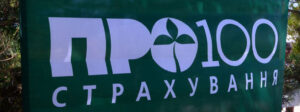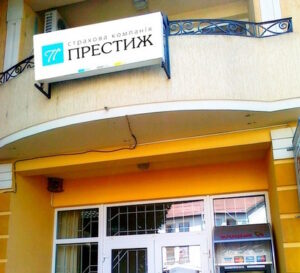
Civilian casualties from February 24, 2022, after Russia launched a full-scale war against Ukraine, to May 1, 2023, totaled 23,375 (23,015 as of April 24), including 8,709 deaths (8,574), the UN Office of the High Commissioner for Human Rights (OHCHR) said Tuesday.
“OHCHR believes that the real number of civilian deaths or injuries is significantly higher, as many reports from places where such cases have occurred still require further confirmation, while information from some places where fighting is ongoing is delayed,” the paper noted regarding the UN data.
This is the case, for example, in such locations as Mariupol (Donetsk region), Lysychansk, Popasna and Severodonetsk (Luhansk region), where numerous civilian deaths or injuries have been reported.
According to confirmed UN data, 3,933 men, 2,341 women, 270 boys and 214 girls were killed, while the gender of 31 children and 1,920 adults could not yet be determined.
Among the 14,666 wounded, 431 were boys and 304 girls, and 278 children whose sex could not yet be determined.
Compared to April 24, nine children were killed and 14 more were wounded.
Whereas the OHCHR casualty report used to be issued daily, and then only on weekdays, it has become a weekly report since July. This report, like the previous one, provides data by month.
According to them, the number of deaths in April was 169, compared with 181 in March, 141 in February, 198 in January, 206 in December and 186 in November.
March remains the deadliest month for civilians, according to the UN, with at least 4,094 deaths. In April, according to an OHCHR publication, the number of civilian deaths due to the war dropped to 798, in May to 534, in June to 426 and in July to 379. In the first five days of the war from February 24-28, 362 people died, in August 336, in September 393 and in October 305.
The number of wounded for April reached 496, compared with 592 in March, 458 in February, 539 in January, 617 in December, and 541 in November. In October, the number of wounded dropped to 795 from 981 in September, when it was up from 917 in August. Before that the number of wounded exceeded a thousand each month: July – 1130, June – 1105, May – 1138, April – 1890, March – 2987. In the first five days of the war last February 465 people were wounded.
According to the report, in April of this year, large-area explosive weapons killed 165 people and wounded another 456, while mines and explosive remnants of war killed four people and wounded four (7% of total casualties).
Government-controlled territories accounted for 84 percent of the casualties in April, according to the UN.
The summary traditionally states that the increase in numbers to the previous summary should not be attributed solely to cases after April 24, as the Office verified some cases from previous days during that period.

The powerful interstate power transmission line between Poland and Ukraine modernized by NEC Ukrenergo together with Polish transmission system operator PSE has successfully passed a three-day test since April 27, the NEC said.
According to Ukrenergo, the total cost of the project amounted to 350 million UAH, in addition, about 1 thousand tons of necessary equipment was provided for free by Polish partners.
The company explained that the bulk of the work was done in this node, so that the electricity produced by the Ukrainian power system could be converted to the European voltage of 400 kV and transmitted to Europe.
“It was a complex but mutually beneficial project that we implemented in cooperation with our European colleagues. It is important both for Ukraine and the energy security of Europe,” commented Volodymyr Kudrytsky, chairman of the board of Ukrenergo, as quoted in the company’s Telegram feed on Tuesday.
According to him, the line will strengthen links between the Ukrainian and European energy systems, constituting an additional element of European energy security and contributing to the development of a stable energy network in Ukraine.
“If the needs are different, we will be able to import electricity from Europe,” Kudritsky said.
The NEC added that the total length of the line is almost 400 km, more than 70% of which runs through Ukraine. The line is connected to the backbone network through an open switchgear on one of the Ukrainian power facilities. On the construction of the facility from the Ukrainian side for five months during the war worked 125 specialists – 45 employees of “Ukrenergo” and 80 contractors.
At the same time, Polish operator PSE on its auction platform on Tuesday announced a one-month auction to allocate available cross-section capacity on the Rzeszow-Khmelnitsky line for delivery from May 15-31. The capacity offered in the auction is 200 MW for exports from Ukraine and 350 MW for imports from Poland. Under the auction terms, bids from bidders will be accepted until May 8 at 16:00, with the results to be announced by the same time on May 10. Since NEC Ukrenergo during the war can only conduct daily auctions according to the requirements of ENTSO-E, it has to conduct them two days before the delivery day, i.e. the first can be expected on May 13 for the same capacity to be distributed by the Polish operator.
At the same time, the market notes that for the first week of May, Ukrenergo does not distribute cross-section capacity on the Dobrotvir-Zamosc line, through which DTEK Zakhidenergo exports 75MW hourly to Poland, due to a number of holidays in this country and the failure to hold auctions by the Polish operator.
As reported, the reconstructed 400 kV line between KNPP and Rzeszow was scheduled to be put into operation at the end of April. Reconstruction of the 750 kV Khmelnitsky NPP (KNPP) – Rzeszow line, which has not been in operation since the 1990s, provided for its transfer to the 400 kV voltage used in the European grid. Its launch allows for a 25-30% increase in Ukrainian export potential. The line will operate in synchronous mode, i.e. all participants of the Ukrainian and European markets will have access to it.

The unified registry of missing persons was launched on Tuesday, May 2, the Ministry of Reintegration of the temporarily occupied territories of Ukraine said.
“Starting today, data on missing persons will be entered into the unified register of missing persons. The register was developed by the Ministry of Internal Affairs together with the Commissioner for Missing Persons and other agencies,” the press service of the Ministry of Reintegration said in a statement on Tuesday.
It is noted that the registry will collect and centralize data on missing persons: Full name of the person, place and date of birth, marital status, place of residence, territory where the disappearance occurred, circumstances and time of disappearance, signs of the disappeared.
The registry will also include information on the presence or absence of a court decision to declare a person missing or declared dead, as well as other data used to ensure the registration of persons.
We remind that earlier editors and publishers of major Ukrainian media launched a project to find missing civilians – “Find the loved ones”. The project was designed to search for loved ones during the most difficult days of the war.
The initiator and coordinator of the project “Find your loved ones” is the deputy head of the news agency “Interfax-Ukraine” and publisher of the project Open4Business Maxim Urakin.

The rating committee of Expert-Rating RA has withdrawn the financial stability rating of the insurer PROSTO-insurance PJSC (Kiev) according to the national scale, according to the website of RA.
The decision has been taken due to revocation of the company’s license for financial services provision by the National Bank of Ukraine on April 27 due to the fact that the insurer’s ownership structure does not meet the requirements of Ukrainian legislation.
The Agency informs that JSC PROSTO-insurance has not provided it with information on non-compliance of its ownership structure with the legislation requirements. The Agency also notes that from April 28, 2023 JSC “PROSTO-insurance” loses the right to: conclude contracts (to prolong the term of the existing agreements), conclude the contracts (to make changes to existing contracts), which will increase the liabilities to the clients. The company continues to fulfill all its obligations under the insurance contracts, which were concluded before the decision of the NBU came into force.
As reported, according to the last submitted accounts for 2022, at the end of the year the amount of insurance premiums of the IC was UAH 204,931 mln, assets – UAH 568,122 mln, insurance reserves – UAH 175,885 mln.
The company’s market share in insurance premiums was 0.6% of the total market (including civil liability insurance of vehicle owners (under internal contracts) – 1,52%).
IC PROSTO-Insurance was registered in 1997. It specializes on provision of services in the field of risk insurance.
According to the NCSSM as of the fourth quarter of 2022, 99,998% of the insurer’s shares belong to the company Lavidia Limited (Cyprus).

The average insurance premium for compulsory motor third party liability insurance (MTPL) in January-March this year amounted to UAH 1.051 thousand, which is by 15.7% more than during the same period last year and by 36.8% more than in the first quarter of 2021, according to the website of Motor (Transport) Insurance Bureau of Ukraine (MTIBU). It is also noted that the average amount of payment has increased to UAH 29.020 thousand, or 30.6% compared with the first quarter of 2022, and by 44% compared with January-March 2021.
As it was reported, in Q1 2023 there were almost 1,6 mln. contracts on MTPL insurance (+14,1% and “minus” 17% respectively).
The amount of insurance payments amounted to 1,7 billion UAH (increase by 32,1% and 13,5%).
The insurance companies settled 31 thousand claims by making insurance payments (decrease by 1,7% and 27% in comparison with the figures of the similar periods of two previous years) and paid almost UAH 0,9 bn. to the victims of traffic accidents (increase by 28,4% and 4,4%).
At that the number of electronic CMTPL insurance contracts in January-March 2023 exceeded 1 mln. The share of electronic contracts in the total number of contracts amounted to 64,4%, in the total sum of premiums – 71,1%. These are the highest indices since the introduction of the electronic policy system.
The number of claims settled according to the simplified system without calling the police – “euro-protocol” increased in comparison with first quarter of 2022 by 2,9%, up to 2,7 thousand pieces. As compared to January-March 2021, the index dropped by 17.8%.
The part of claims settled by means of European prototype in total number of settled insured events continues to grow steadily: from 20,5% in Q1-2022 up to 22,5% for three months of the current year.
The amount of payments on euro-protocols has grown by 40,9% in January-March of the last year and made UAH 202,7mln. The share of claims settled by “Europrotocols” in the total amount of paid claims reached 41,0%, which is a record level.

PJSC “Insurance company “Prestige” (Kiev) has finished January-March this year with net premiums of UAH 11.773 million, which is 3.6% less than during the same period a year earlier, according to the insurer in the information disclosure system of the National Commission on Securities and Stock Market (NKTSBFR).
According to it, the gross premiums of IC for the first quarter decreased by 18%, to 15,5 mln UAH, transferred to reinsurers increased by 4,3% – to 5,6 mln UAH.
The company paid out UAH 2,6 mln (-19,1%) in the Q1 of the current year. Administrative expenses increased to UAH 820 ths (+16.5%), and sales expenses increased to UAH 8.238 mln (+3.2%).
Pre-tax financial result made UAH 476 th. (-15.3%), net profit – UAH 15 th. (-44.5%).
Private JSC “IC “Prestige” has been established in 2012. Shareholders are individuals – citizens of Ukraine. The company has 14 licenses for voluntary insurance and 11 licenses for obligatory insurance.